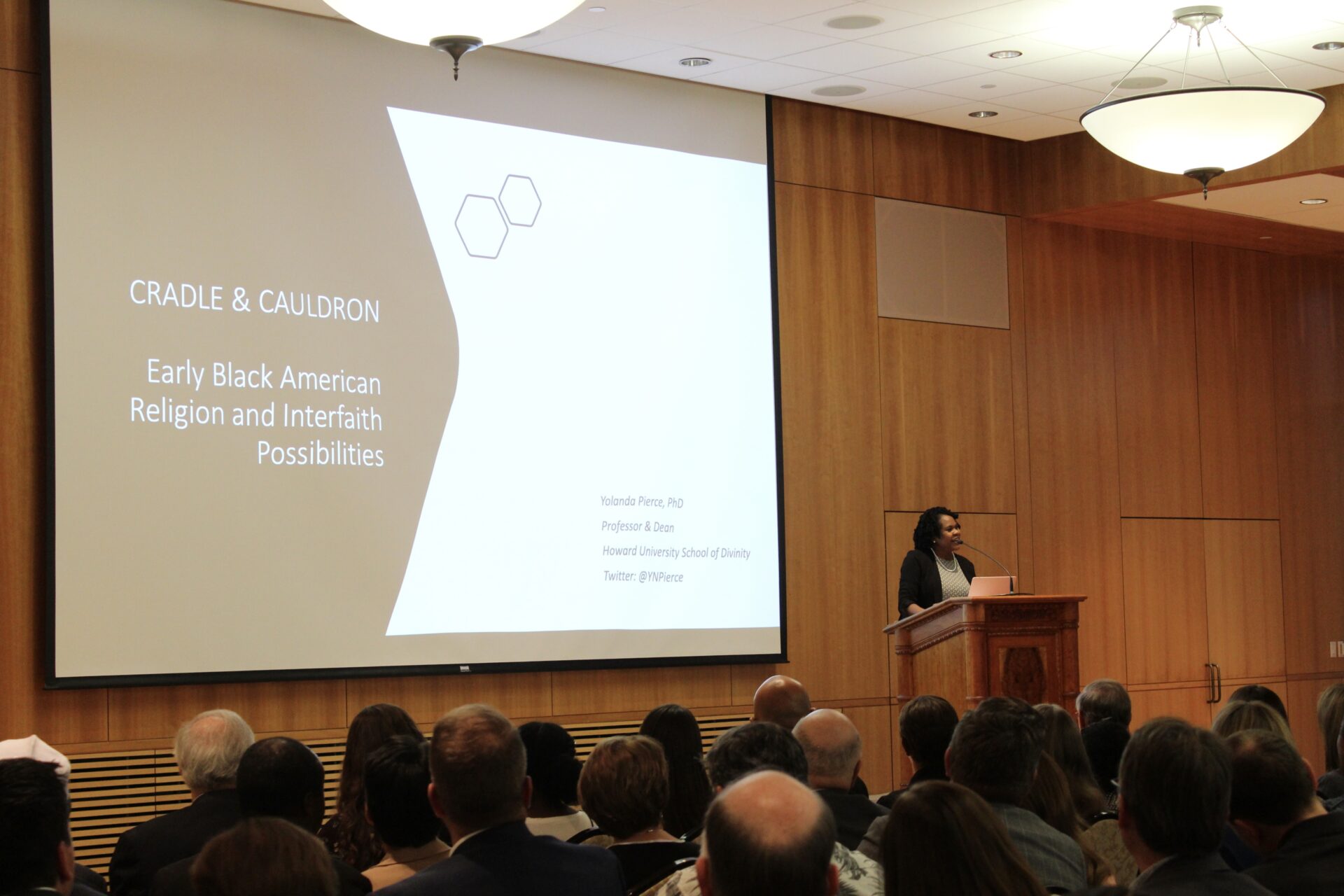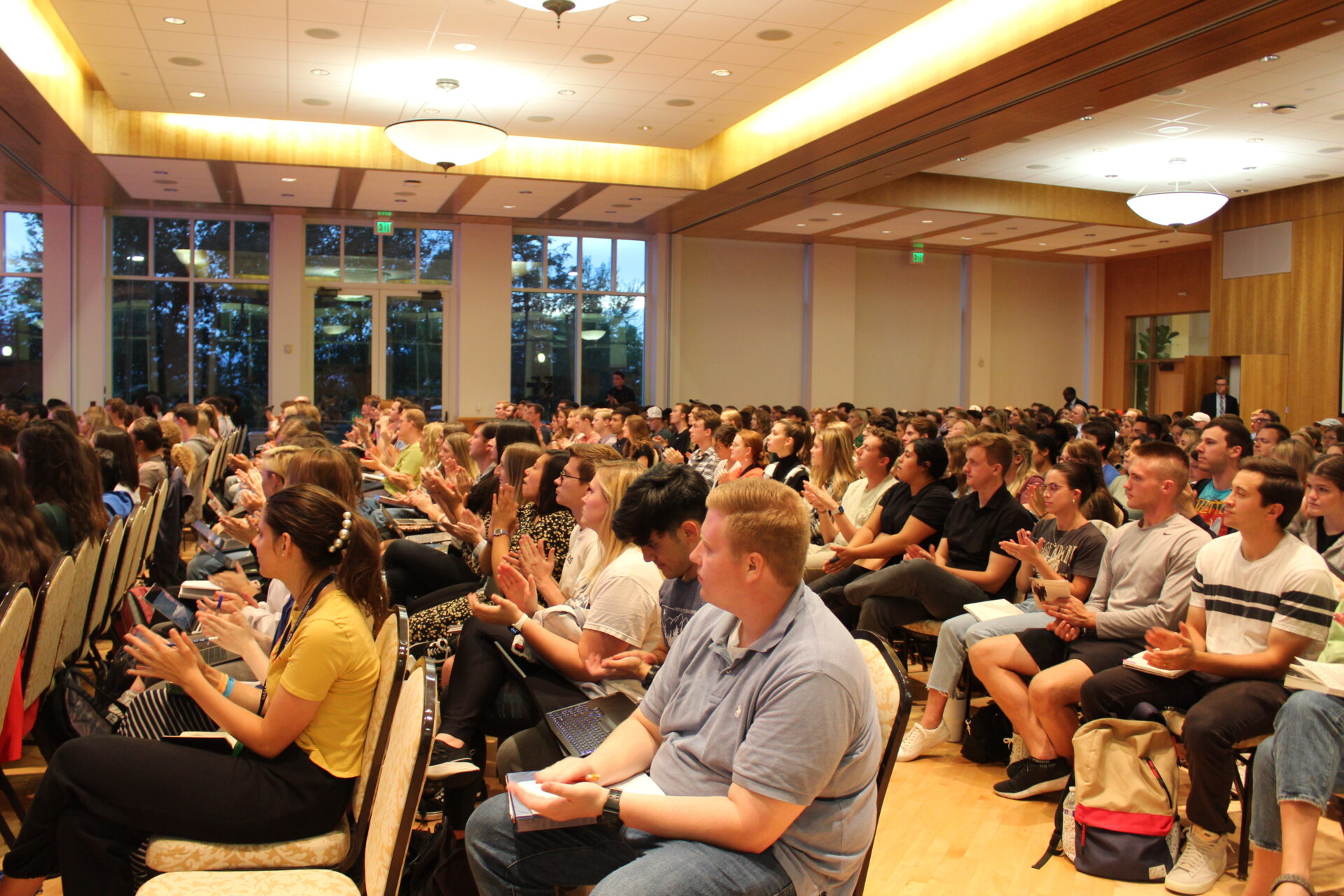
The Dean of the Howard University Divinity School, Dr. Yolanda Pierce, spoke to the BYU community and guests on Sept. 15 about early Black American religion and Interfaith opportunities.
Those in attendance included President and Sister Worthen, deans, faculty members, special guests and students. One of those students in attendance was Ashlynn Constans. She said she was there as part of an assignment for student development but chose this lecture out of her love for learning about other religions.
“We have so much in common with a lot of people around the world but sometimes we get so caught up in the differences that we forget to see the similarities,” Constans said.

Pierce began her own history, as her ancestors were some of those that came across the Atlantic as part of the Trans-Atlantic slave trade. She addressed how the names, histories and traditions of some of those people died but also acknowledged that some things can survive this horrible transitional state.
“Faith survives liminal spaces,” Pierce said.
An important point Pierce made in the lecture was that slaves brought their religions with them to America. She said that many people at the time thought slaves were not yet religious and only became religious when they came to America. In reality, there were many practicing Muslim and Christian slaves who came across the Atlantic.
Pierce then told the story of a man named Omar Ibn Sayyid who was a Muslim slave said to have converted to Christianity. He still spoke and read Arabic and was sought after in America to write various scriptures such as the Lord’s Prayer in Arabic. It was much later discovered that he was never writing down scriptures such as the Lord’s Prayer but instead was writing down verses from the Quran in Arabic. Pierce explained that this was significant because it shows that not all slaves were Christian, as history sometimes makes it seem. She said there were many who practiced other religions in secret throughout their lives.
Randall Smith, a master’s student in the BYU School of Music, said he saw the poster for the event and was immediately intrigued. “This particular subject matter is just talking about interfaith possibilities, I think that’s a really beautiful idea and something that is really worth considering and thinking deeply about,” Smith said.
Pierce talked about three lessons that are learned through interfaith work. The first lesson was that we need to have a common language. Pierce explained that we are all human and all ask similar questions when it comes to the divine. She said, “the best way to do interfaith work is to be able to grapple with a language that we can all use so that we don’t privilege one individual or one group’s set of text.”
Using the Underground Railroad as an example, Pierce describes the second lesson as needing mutual cooperation to accomplish anything regarding interfaith work. In this example, she said many people of different faiths and traditions came together for a common goal.
The third lesson Pierce discussed was that interfaith work is intergenerational. She stressed the importance of learning from your ancestors and building upon what they know to create your own legacy.
Pierce closed by saying “Interfaith work is racial justice work. If you are doing interfaith work you’re doing racial justice work. Interfaith work strengthens our own faith journeys.”




